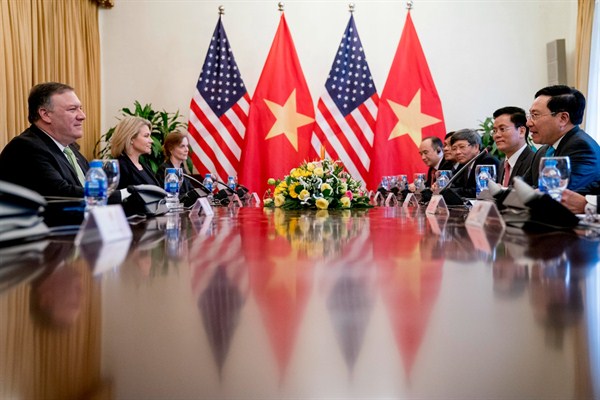Hanoi’s role as host of the second summit between U.S. President Donald Trump and North Korean leader Kim Jong Un put U.S.-Vietnam ties in the spotlight. Over the past decade, Hanoi and Washington have succeeded in putting the bitter memories of the Vietnam War behind them to forge a mutually beneficial relationship. But the jolt of Trump’s withdrawal from the Trans-Pacific Partnership early in his term and several potential irritants could complicate efforts to develop even closer ties. In an email interview, Carlyle A. Thayer, emeritus professor at the University of New South Wales, Canberra, explains the impact of the TPP withdrawal on bilateral relations, the factors driving and impeding closer ties, and the potential obstacles moving forward.
World Politics Review: What drove the Vietnamese government’s decision to join the Trans-Pacific Partnership, and how did it respond to the Trump administration’s decision to withdraw from the deal?
Carlyle A. Thayer: One of Vietnam’s major foreign policy goals, as expressed in the political report to the 12th National Congress of the Vietnam Communist Party, is to pursue “active, proactive international integration.” Therefore, Vietnam was very keen to become a member of the Trans-Pacific Partnership, or TPP, after the Obama administration threw its support behind this initiative in 2009. The United States is Vietnam’s largest single-country export market, and joining the TPP would have resulted in a lowering of tariffs to 10 countries whose combined economies make up 40 percent of global GDP. Vietnamese leaders concluded that the benefits of access to this combined market outweighed the costs of opening their economy to greater foreign competition, allowing independent labor unions and protecting other nations’ intellectual property rights as required by the terms of the TPP agreement.

